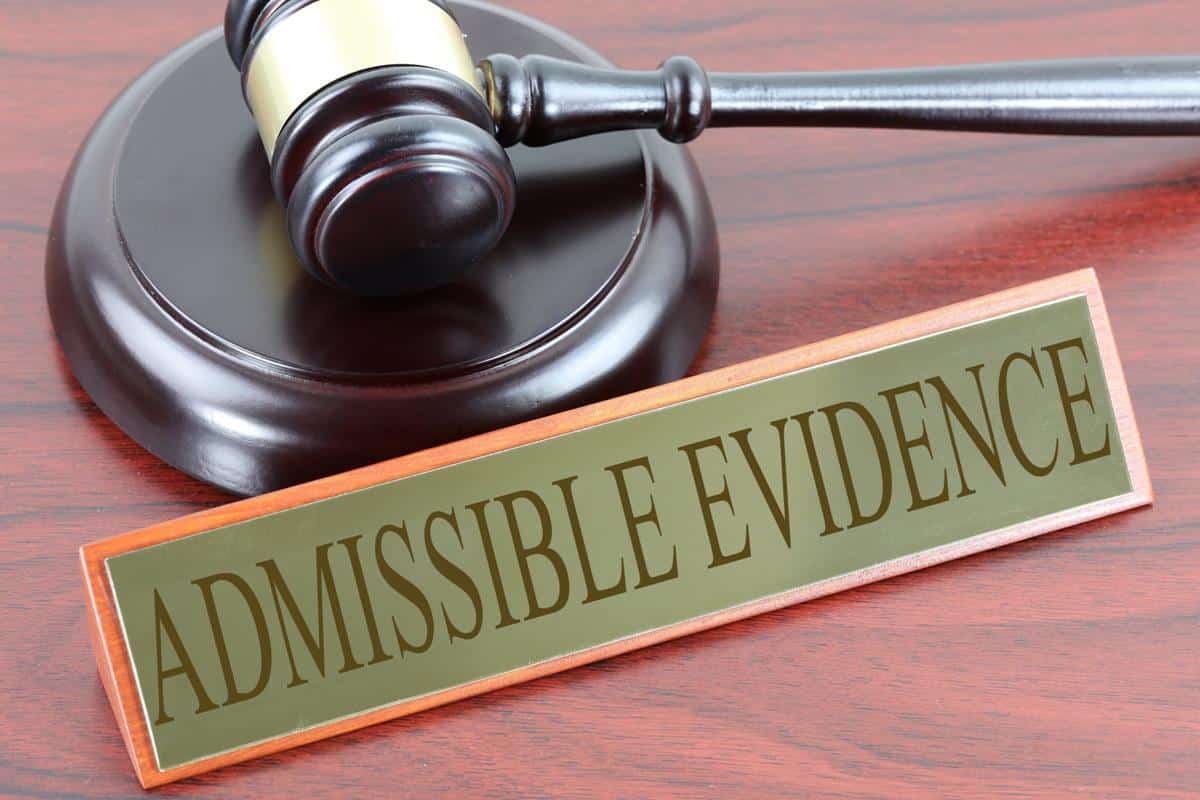
Admissible Evidence
Admissible evidence refers to the evidence that a court allows to be presented in legal proceedings, such as car accident cases. For evidence to be admissible, it must meet specific legal standards that ensure it is relevant, reliable, and fair. The inclusion of admissible evidence can significantly strengthen a case, providing clear and compelling information to establish liability, prove damages, and support claims. At 770GoodLaw, we understand the critical role of admissible evidence in securing successful outcomes for our clients and are dedicated to presenting evidence that strengthens their cases.
What is Admissible Evidence?
Admissible evidence is any information that meets the legal criteria required to be presented in court. Courts have stringent guidelines to determine admissibility, ensuring only relevant and trustworthy information is considered. Evidence that does not meet these standards is typically excluded, meaning it cannot be used to support a claim or defense. The types of admissible evidence commonly used in car accident cases include:
-
Photographic Evidence: Photos of the accident scene, vehicle damage, and any visible injuries can provide a visual record that helps to illustrate the severity of the accident and any contributing factors.
-
Witness Testimony: Statements from people who witnessed the accident are essential in reconstructing events and confirming who may have been at fault.
-
Medical Records: Medical records documenting injuries, treatments, and recovery processes can substantiate claims for medical expenses and pain and suffering.
-
Police Reports: Official accident reports created by law enforcement contain valuable details about the accident, witness statements, and any citations issued.
-
Expert Testimony: Specialists, such as accident reconstruction experts or medical professionals, can offer technical insights that clarify the nature of the accident and the extent of injuries.
Criteria for Admissible Evidence
For evidence to be deemed admissible, it must satisfy several key legal requirements:
-
Relevance: Evidence must have a direct connection to the case, meaning it should help establish or dispute a fact, such as responsibility for the accident or the level of damages involved.
-
Reliability: Evidence must be credible and trustworthy. Reliable evidence comes from reputable sources, such as eyewitnesses or qualified professionals, and should be consistent.
-
Authenticity: The evidence must be genuine and verifiable. For example, an unaltered photograph or a verified medical record is more likely to be considered authentic and admissible.
-
Non-Prejudicial: Evidence should not unfairly sway the judge or jury by being overly emotional or misleading. Courts often exclude evidence that is likely to cause bias or detract from the facts of the case.
-
Foundation: Adequate foundation must be established to demonstrate that the evidence is what it claims to be. For instance, a medical professional must verify that a medical record is accurate and pertains to the injuries in question.
Common Challenges in Presenting Admissible Evidence
Even when evidence appears relevant, there may be challenges in establishing admissibility. Some of the typical issues include:
-
Hearsay: Hearsay, or statements made outside the court, are usually inadmissible unless they meet specific exceptions, such as statements in medical records made for the purpose of treatment.
-
Improperly Collected Evidence: Evidence gathered without proper permissions or legal procedures may be excluded. For example, photos taken on private property without consent may be deemed inadmissible.
-
Irrelevance: Courts may exclude evidence that doesn’t directly relate to the case. For instance, unrelated past conduct of a party is generally not admissible unless it directly pertains to the accident.
-
Prejudicial Impact: Courts may exclude graphic images or content that could overly sway the jury emotionally, especially if it is not essential to proving key aspects of the claim.
Steps to Ensure Evidence is Admissible
At 770GoodLaw, we take a thorough approach to ensure that all evidence in our clients’ cases is admissible and maximally impactful. Key steps include:
-
Collecting Evidence Legally and Ethically: We adhere to all legal standards when collecting evidence, ensuring that every document, photo, or witness statement is obtained correctly and can withstand challenges.
-
Ensuring Relevance and Reliability: We carefully assess each piece of evidence to confirm it has a clear connection to the case. Our team collaborates with credible experts and witnesses to provide reliable support for our clients’ claims.
-
Maintaining Chain of Custody: For physical evidence, we meticulously document the chain of custody to guarantee that the evidence remains intact and unaltered from collection to courtroom presentation.
-
Preparing for Potential Objections: Anticipating potential objections is an essential part of trial preparation. We prepare responses to common objections regarding hearsay, relevance, or prejudice to keep the evidence admissible.
The Role of Admissible Evidence in Car Accident Cases
The presence or absence of admissible evidence can have a profound impact on a car accident case. Admissible evidence provides a clear basis for the court to assess fault, determine the extent of damages, and evaluate compensation claims. Conversely, evidence deemed inadmissible may weaken a case, limiting the information available to establish key facts. Properly collected and presented admissible evidence strengthens the chances of a favorable outcome and helps to ensure that the case is based on verified, reliable information.
770GoodLaw’s Commitment to Admissible Evidence
At 770GoodLaw, we are dedicated to ensuring that every piece of evidence in our cases meets admissibility standards, aligning with our core values of Relentless Reliability and Sincetegrity. We know that admissible evidence is the foundation of a strong case, so we work diligently to preserve, organize, and present evidence that supports our clients’ claims effectively. Our meticulous approach to handling evidence allows our clients to feel confident that their case is supported by reliable, court-accepted documentation and testimony.
By working with 770GoodLaw, clients gain access to a team that understands the intricacies of admissible evidence and is dedicated to fighting for fair compensation on their behalf. We work closely with clients, witnesses, and experts to ensure that all admissible evidence is gathered and preserved, providing a strong basis for a successful claim.






